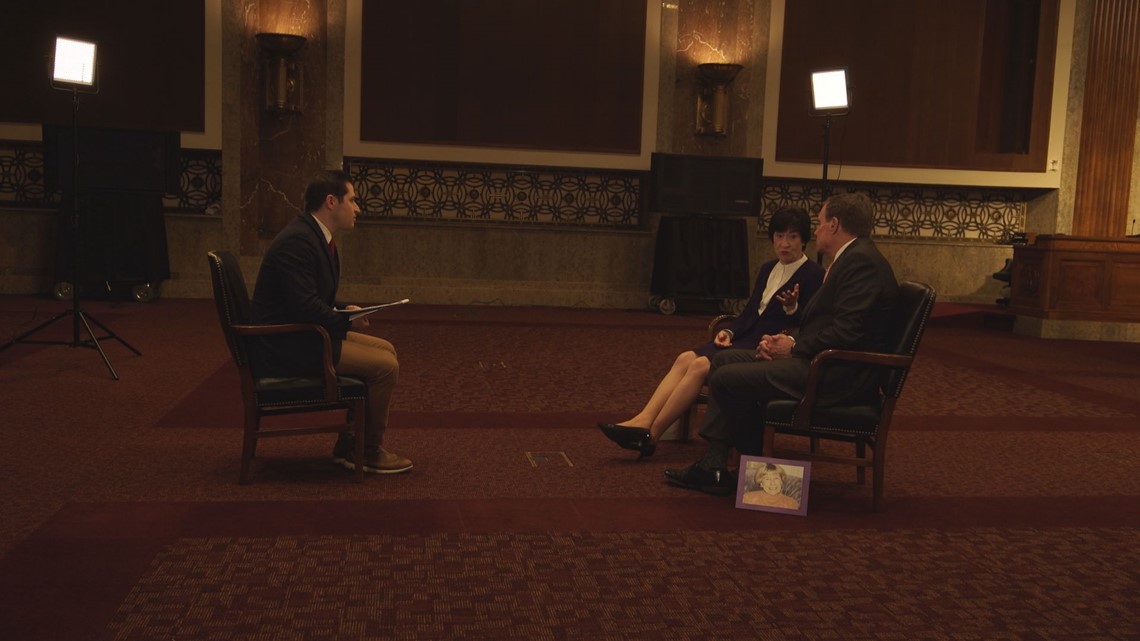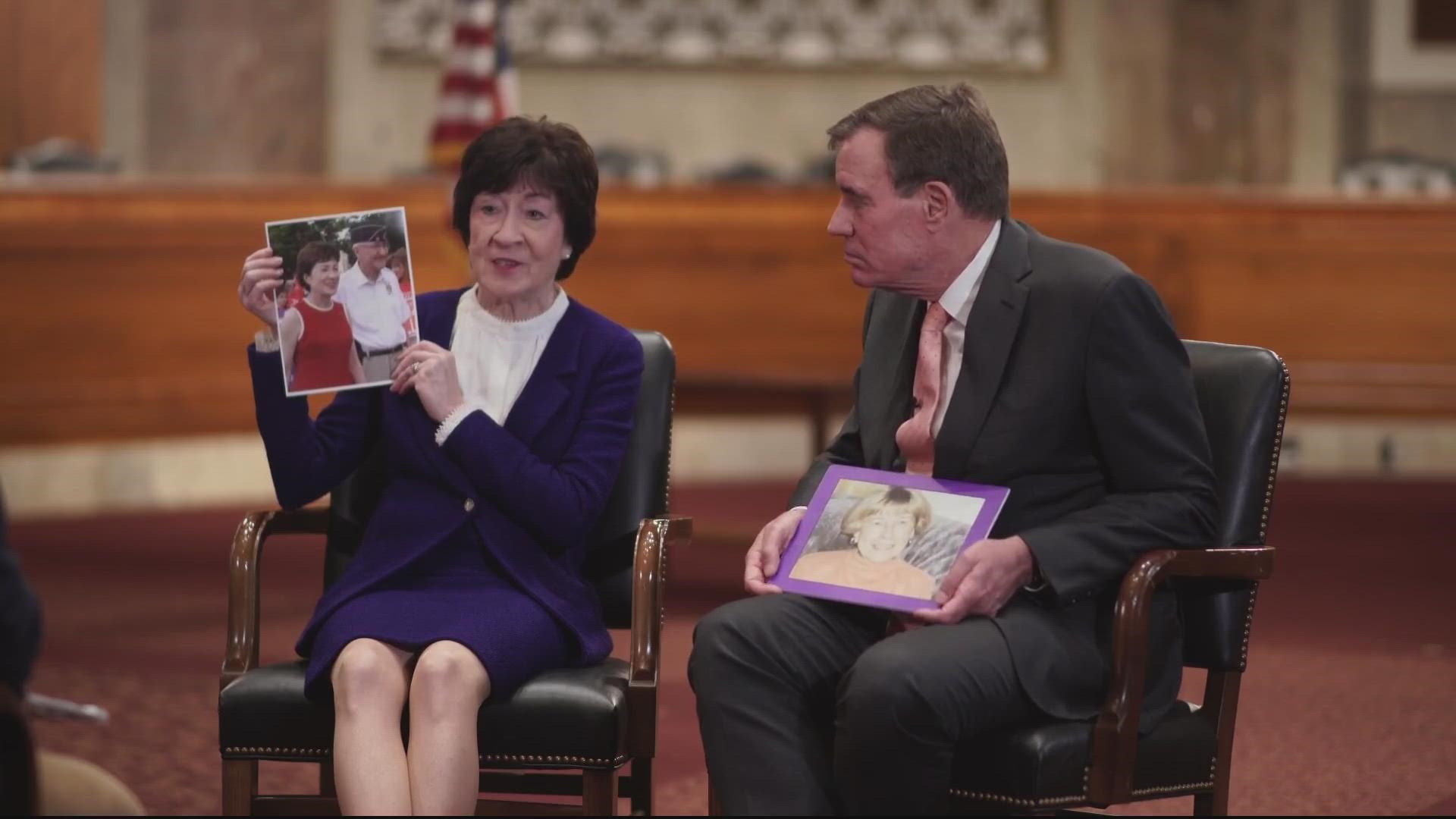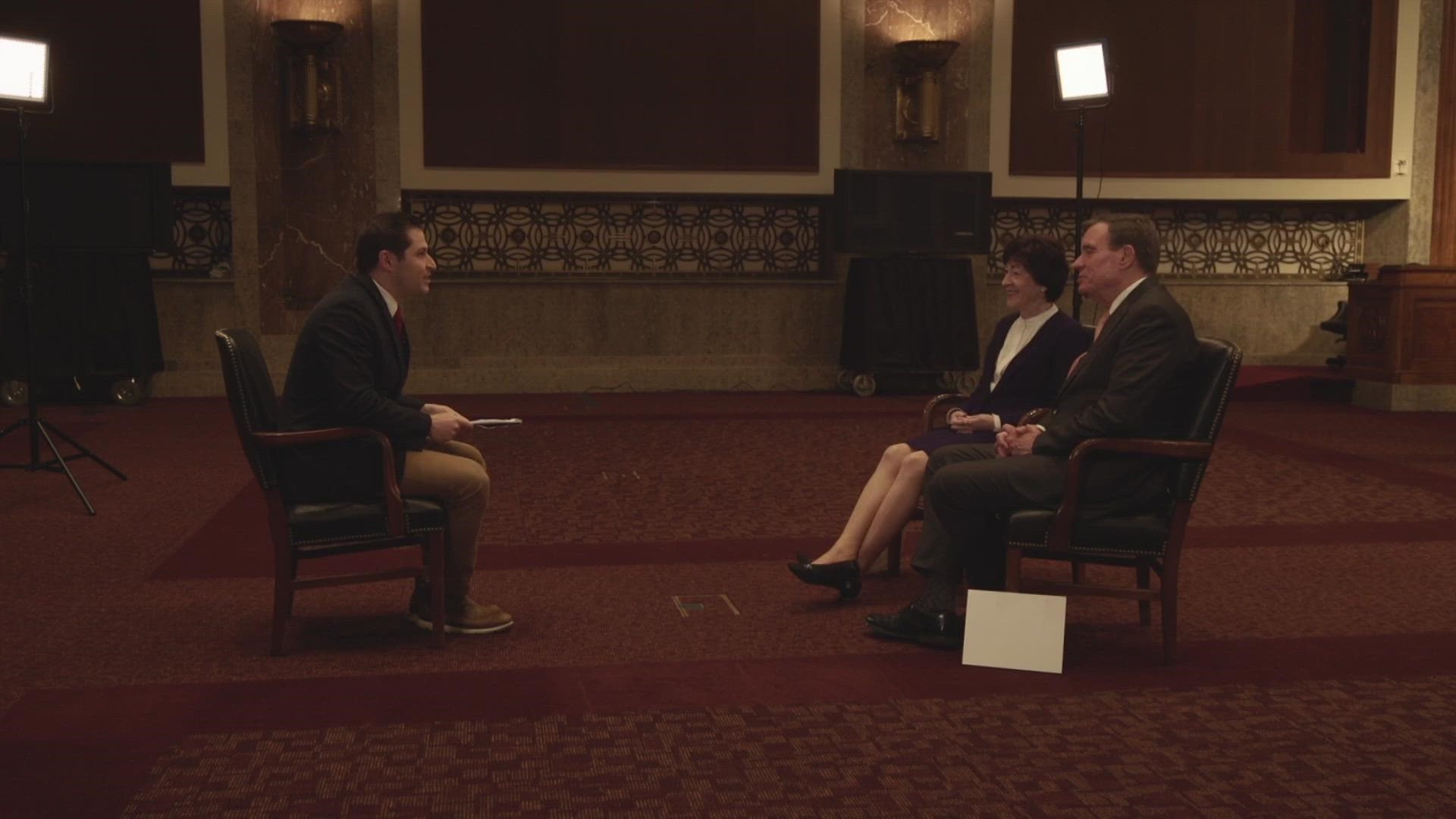WASHINGTON — In this hyper-partisan political landscape, it's become uncommon for Democrat and Republican senators to come together in agreement.
But on a recent morning on Capitol Hill, Sen. Mark Warner (D-VA) and Sen. Susan Collins (R-ME) sat side-by-side for a joint interview.
"We're actually really good friends," laughed Sen. Warner.
"Don't tell anyone," Sen. Collins added.
The two were opening up about their personal experience with Alzheimer's, a devastating illness that took the lives of Collins' father and Warner's mother.
"Alzheimer's doesn't care if you're a Democrat or a Republican," said Collins. "Or a Socialist or an independent. Or if you don't have any political party. It does not discriminate."


The two Senators are co-leaders of the Congressional Alzheimer's Task Force, and are pushing for the passage of two new bills:
The National Alzheimer's Project ACT (NAPA) was first passed in 2011, and convened a panel of experts, tasked with coordinating a strategic national plan to prevent and treat the growing illness. The goal was to find a cure or treatment by 2025.
The law is set to expire soon, which is why the duo is calling for it to be reauthorized through 2035.
"We can talk about Alzheimer’s in terms of its cost," said Sen. Warner. "About $320 billion right now. That’s going to go up to $1 trillion... It would be completely fiscally irresponsible if we don't get this done.”
The second bill -- the Alzheimer's Accountability and Investment Act -- would continue a requirement that the director of the National Institute of Health (NIH) submits a budget directly to Congress, outlining the necessary funding to 'fully implement' NAPA's research goals. This type of direct-funding is also used for cancer and HIV/AIDS research.
"We don't get a filtered estimate of how much is needed," said Sen. Collins. "We get what the experts say is needed."
Both bills have been endorsed by Alzheimer's advocacy groups such as the Alzheimer's Impact Movement and the Alzheimer's Association.
"With robust and steady investment, scientists will be able to work faster to advance basic disease knowledge, explore ways to reduce risk, uncover new biomarkers for early diagnosis and drug targeting, and develop potential treatments," read a statement from the Alzheimer's Impact Movement.
Over the last decade, the research funded through this panel's recommendations, have led to an expanded understanding of the root causes of Alzheimer's, although the science remains unsettled.
Both Senators indicated that they are hopeful that a cure or treatment can be found through increased research funding.
"There really is no investment that pays better dividends to the American people than our funding of biomedical research,” said Sen. Collins.
"I think you’ve got to have that hope," added Sen. Warner. "Because otherwise the challenges are so debilitating."
When the panel was formed in 2011, it passed both chambers by a unanimous vote. This bipartisan pair of senators are hopeful that there will be a similar level of bipartisan support this time around.


